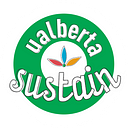Flushing away more than we think
Public health researcher Nicholas Ashbolt aims to overhaul sewer works for long-term sustainability.
By Trevor Chow-Fraser
Originally published in January 2019
We use our sewers like a garbage dump. Waste water systems are designed to just flush everything away, using treated water no less. Everything from rain water to toilet water is considered the same thing: waste.
Yet, sewage is full of valuable nutrients, including some — like phosphorus — which are a finite resource. What happens if we simply flush all of our phosphorus out to sea? “Well, we think that, perhaps 120 years’ time from now, global agriculture will come to a screeching halt,” said Nicholas Ashbolt, professor in the School of Public Health.
That’s why Nicholas Ashbolt hopes to see the whole wastewater system redesigned. He is helping develop and implement new systems that will transform our sewers with the goal of saving water, salvaging precious resources like phosphorus and nitrogen, and even generating energy.
He discussed this work in a recent interview with the Sustainability Council’s Associate Director Research, Sheena Wilson, who has been talking to faculty across the institution about their sustainability scholarship.
Why, oh, why did we design it this way?
Ashbolt’s research sits at an uncomfortable intersection, trying to understand why many of the systems we rely on for a modern, healthy lifestyle are also ultimately unsustainable.
“We currently flush away our feces with high quality, potable water. Who would’ve engineered it that way if you thought about it seriously?” said Ashbolt.
He remains optimistic that these systems can be fixed, partly because he sees his students getting fired up about the absurdity of it all. “It actually makes some people quite angry to think how we’re wasting our precious resources,” said Ashbolt.
What if we could re-engineer this system so that the valuable resources could be extracted, and we could safely treat and reuse water throughout the system? Well, according to Ashbolt, that could halve the energy and life cycle costs for our sewer system.
“It’s economic, it reduces the impact on the environment, and by the way, it’s healthier for us. Why would we not do this?”
Why not? That’s the fascinating side to Ashbolt’s work. “It’s not about technology. It’s not even about the money. It’s really about the policy and the governance to get it to happen,” said Ashbolt.
Setting the water standards
For his part, Ashbolt has been working hard to push the agenda forward by reforming water standards here in Alberta and further abroad. His previous work at the World Health Organization and the U.S. Environmental Protection Agency set the stage for paradigm-shifting regulations that are now being implemented in San Francisco. With these far-reaching regulatory changes, Ashbolt sees the potential to shift the whole system toward true sustainability.
“We’re moving towards a very consistent, risk-based, performance-based approach to managing safe water. But it’s much more than that. We’re looking also at nutrients and energy, and greenhouse gases, eutrophication, biodiversity issues — all captured now as we move to this performance-based approach,” said Ashbolt.
He is confident that policy reforms can succeed on such a broad level because he is involved in truly transdisciplinary work. His colleagues include civil engineers, medical professionals, microbiologists, city developers and policymakers. It’s a diverse group, but his own career crosses many of the same disciplines.
A journey across disciplines and continents
“I grew up in Tasmania, where a third of the island state is a world heritage site because it is still pristine wilderness. There aren’t many places on the planet left like that.”
As a young undergraduate, Ashbolt was interested in the microbiological foundation of his beautiful island home. This got him into composting, the focus for his PhD, and he spent many years using microbes to transform waste products like sewage or eucalyptus bark back into useful resources.
With this foundation, he found work in the sugar industry; solving acid mine drainage problems in places like Rum Jungle; and a stint on a research base in Antarctica. It was in that very restricted environment, where all foreign organisms are meant to be kept out of the environment, that Ashbolt found the link from his research to water and recycling.
“That led me down a path that I used to think was very boring, which was regulations and guidance documents. But I now see why that’s so fundamental and foundational to getting change. I’ve spent a good 25 years of my career in influencing change and developing a whole research field,” said Ashbolt.
With a wide-ranging career, many research insights and policy breakthroughs just on the horizon, Ashbolt is enthused for the transformative work to come. “It’s amazing where an interest — and then a love — of microbiology has led me,” said Ashbolt.
